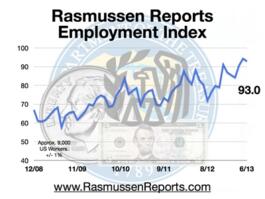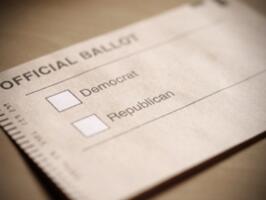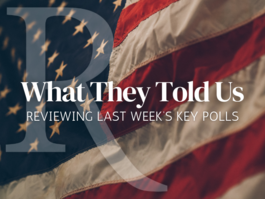56% Think Constitution Should Be Left Alone
Most Americans continue to believe the U.S. Constitution should be left as is and remain the nation’s fundamental law.
A new Rasmussen Reports national telephone survey finds that 56% of American Adults think the Constitution should be left alone. Thirty-three percent (33%) believe minor changes are needed in the nation's foundational document. Just four percent (4%) feel major changes are necessary. Two percent (2%) think the United States should scrap the Constitution completely and start over. (To see survey question wording, click here.)
(Want a free daily e-mail update? If it's in the news, it's in our polls). Rasmussen Reports updates are also available on Twitter or Facebook.
The national survey of 1,000 Adults was conducted on June 19-20, 2013 by Rasmussen Reports. The margin of sampling error is +/- 3 percentage points with a 95% level of confidence. Field work for all Rasmussen Reports surveys is conducted by Pulse Opinion Research, LLC. See methodology.

















